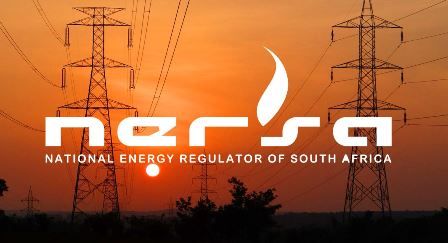
Big electricity price surprise on the cards
By: Staff Writer – My Broadband
South African households and businesses buying power from municipalities might avoid their regular annual electricity tariff hike in the coming months.
Sunday newspaper Rapport reports that the National Energy Regulator of South Africa’s (Nersa’s) failure to abide by a court ruling on electricity price determinations will make it impossible for municipalities to hike prices without facing a legal challenge from users.
Municipal price adjustments usually take effect from 1 July every year, three months after increases kick in for Eskom Direct customers.
Eskom has already confirmed it will apply a 12.72% increase in the prices of the electricity it sells to the municipalities in 2024.
However, municipal end-users can get a higher price hike if their authority applies for an additional increase with Nersa. The hike can also be lower depending on their own cost-of-supply calculations.
Municipalities have to submit these applications to Nersa by 1 March each year and the final adjustments are confirmed to customers a few weeks later.
Old method declared unlawful
However, the Pretoria High Court declared the method Nersa used to approve these adjustments unlawful in a ruling in October 2022.
It ordered the regulator to develop a new method within 12 months. That allowed Nersa to continue using the previous determination rules for 2023’s price hikes, but not for 2024’s.
The main issue with the method Nersa previously used was that it only considered how municipalities’ biggest electricity supply cost elements increased, meaning it was not truly cost-reflective of all factors.
Instead of developing new guidelines for municipal electricity price determinations, Nersa passed the buck to the municipalities.
In November 2023, it instructed them to conduct their own cost studies to determine the effective costs. However, few municipalities have acted on this, likely due to the additional costs involved.
While Nersa has the power to punish municipalities which failed to act on its instructions, it has rarely done so.
According to electricity regulation specialist law firm MC Botha Incorporated, Nersa’s only option is to go back to the court and request that the old method be allowed for this year.
Rapport reported that this was also the internal legal advice Nersa received, but the regulator is yet to decide on a course of action.
Municipal electricity price increases are often higher than Eskom’s wholesale adjustments, although there have been some exceptions.
In 2023, for example, Nersa approved a 18.49% hike in Eskom’s electricity prices to municipalities.
Johannesburg limited its average price increase to 14.9% and Tshwane increased tariffs by 15.1%.
Even the City of Cape Town, which has the highest electricity fees of major metros in South Africa, hiked its charges by 17.6% — nearly a percentage point lower than Eskom’s hike.
Although these increases remain well above the rate of inflation, Eskom’s skyrocketing costs are the biggest contributors to the higher prices that consumers have to pay.
The power utility’s hikes are based on its supply cost determinations according to the Multi-Year Price Determination methodology, which is also being revised.
The power utility had actually sought a much higher 32% increase in 2023.
Eskom’s operational costs have been on the rise due to its heavy reliance on expensive generation from diesel-powered open-cycle gas turbines, higher procurement costs from independent power producers, and depreciation of its power generation assets.
Municipalities complicit in the problem
However, one should also consider that many municipalities contribute to Eskom’s dire financial situation.
According to National Treasury, dozens of municipalities owed Eskom a collective R58 billion by November 2023.
If no interim solution is found to Nersa’s failure to abide by the court order, many more municipalities’ could be added to Eskom’s outstanding bill list, as they would be selling electricity to consumers at a loss.
The non-payment issue has put Eskom in a difficult position, as cutting electricity supply to defaulting municipalities results in many paying end-users being without power.
In 2019, the Pretoria High Court ruled that Eskom was not allowed to unilaterally disconnect delinquent municipalities from electricity supply until it had exhausted all remedies contained in sections 41 and 42 of the Intergovernmental Relations Framework Act.
That includes engaging with municipalities and the national government on potential solutions to resolving the debts.
News Category
- International retailers
- On the move
- Awards and achievements
- Legislation
- Wine and liquor
- Africa
- Going green
- Supplier news
- Research tools
- Retailer trading results
- Supply chain
- Innovation and technology
- Economic factors
- Crime and security
- Store Openings
- Marketing and Promotions
- Social Responsibility
- Brand Press Office
Related Articles

Warning of Eskom collapse

Knorr recalls brown onion gravy sachets

Eskom CEO shares good news about load-shedding

Tax warning for South African businesses


